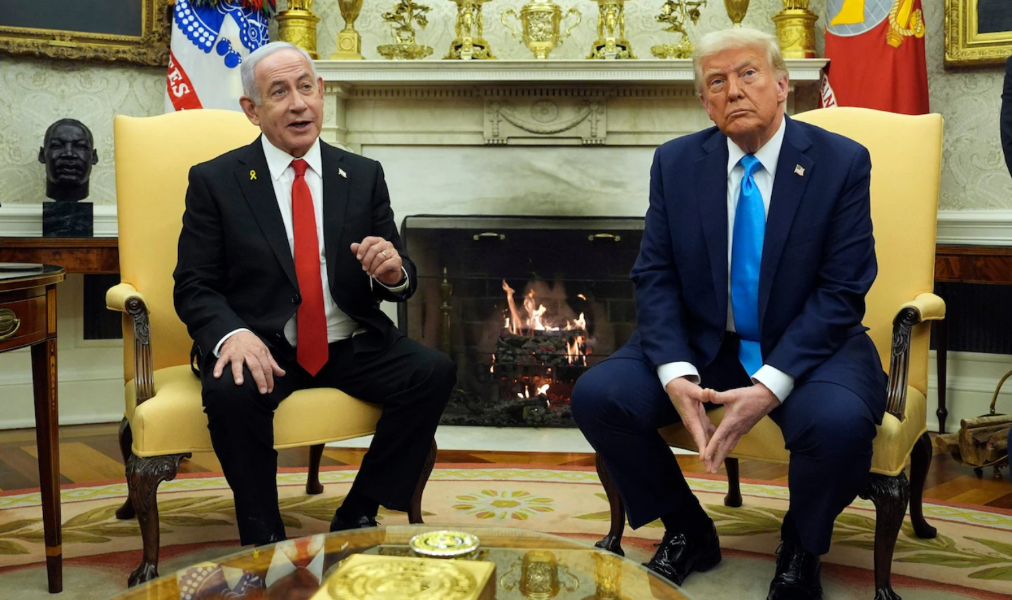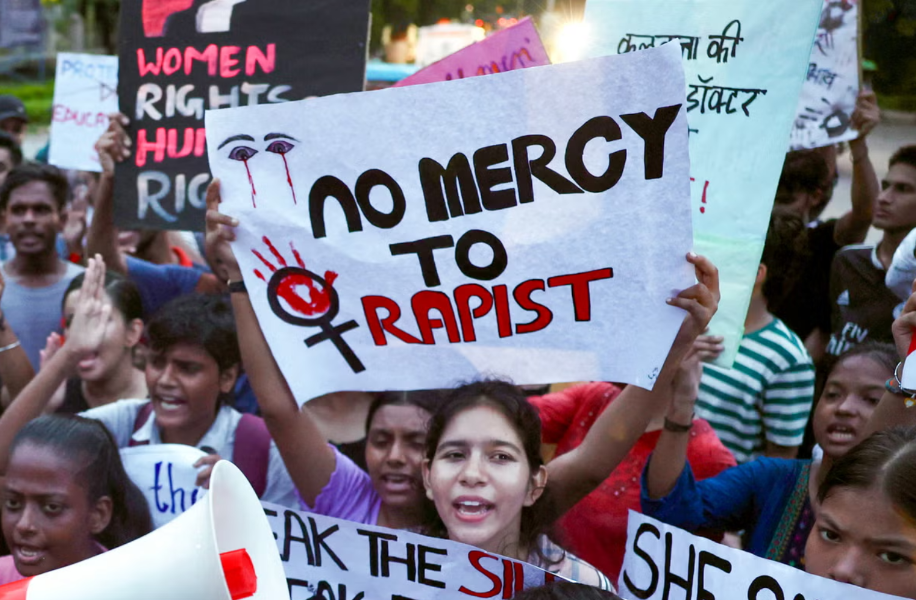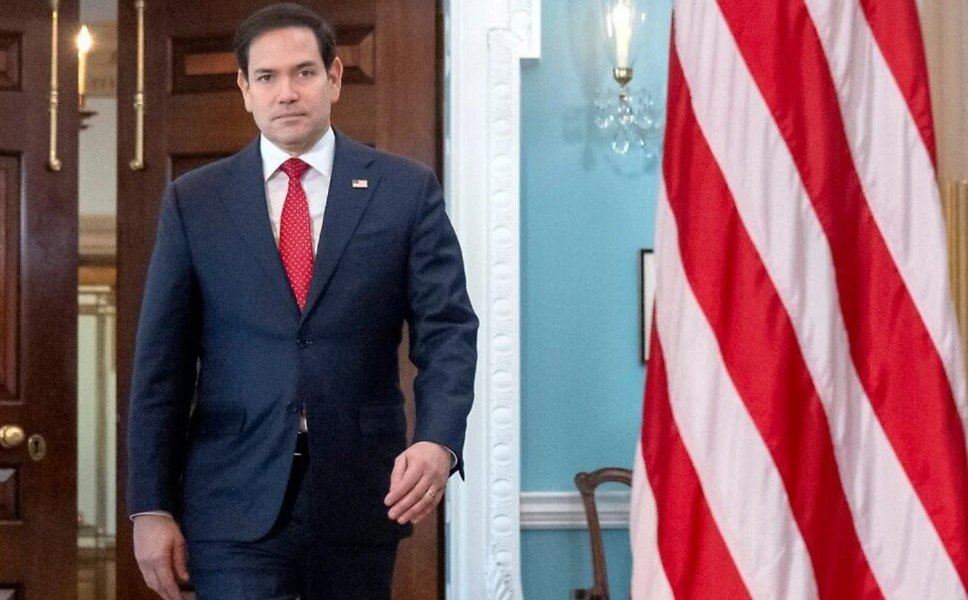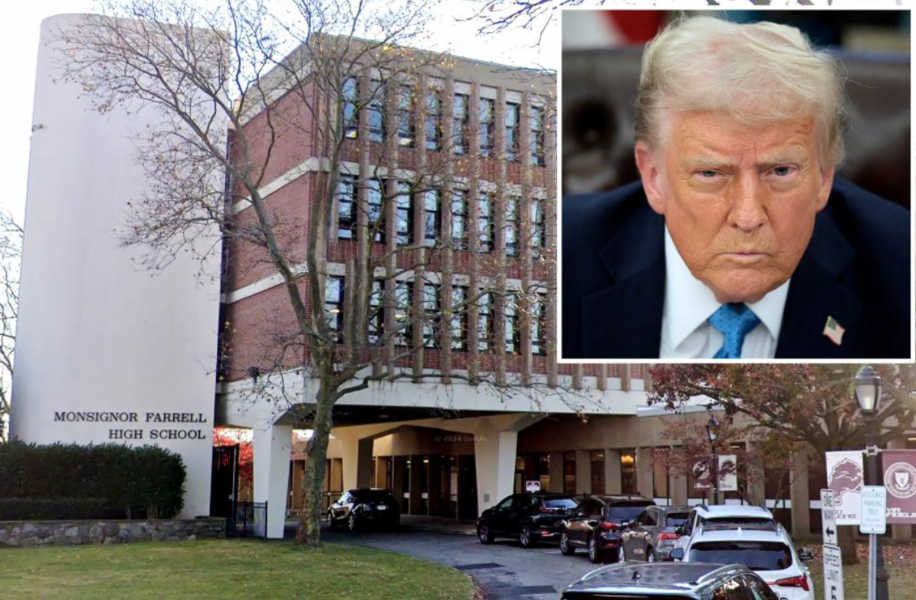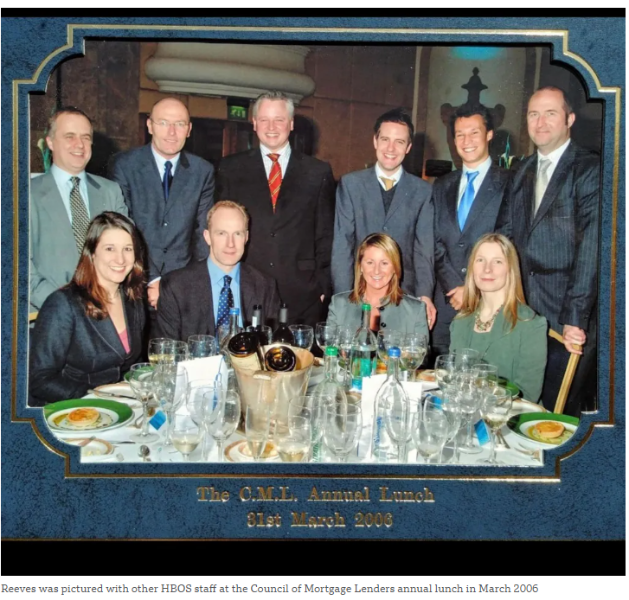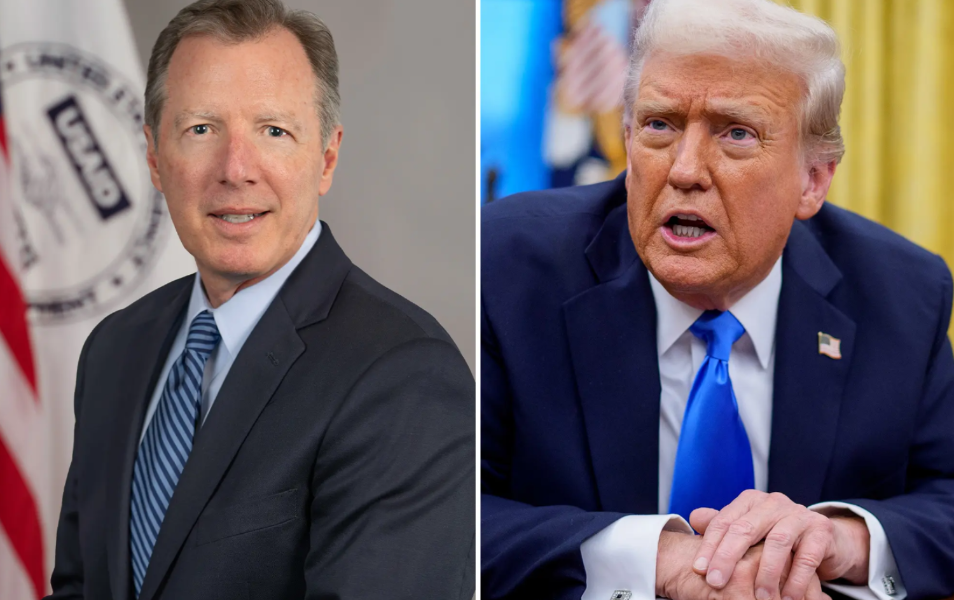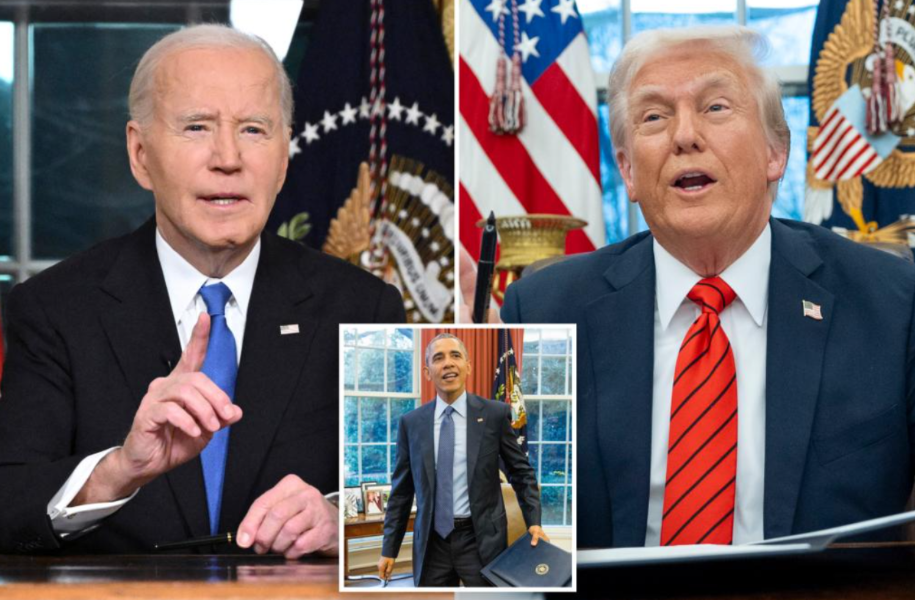-
Posts
9,982 -
Joined
-
Last visited
Content Type
Events
Forums
Downloads
Quizzes
Gallery
Blogs
Everything posted by Social Media
-
John Bolton argues that it is time to abandon the long-standing two-state solution for Gaza and instead take a new approach to handling the Palestinian refugee crisis. He believes that the United Nations Relief and Works Agency (UNRWA) should be dismantled, and the responsibility for Palestinian refugees should be transferred to the UN High Commissioner for Refugees (UNHCR), treating them as all other displaced populations have been handled since World War II. Donald Trump’s recent comments on Gaza, made after his February 4 meeting with Israeli Prime Minister Benjamin Netanyahu, have sparked widespread debate. While his remarks seemed impromptu, they were, in fact, prepared in advance. As usual, Trump deviated from the script, at one point musing about the possibility of the United States exerting military control over Gaza. White House officials quickly walked back these statements, only for Trump to reverse course once again, insisting he was serious about American involvement—though without the use of force. Bolton clarifies that he has never advocated for deploying the U.S. military in Gaza. The controversy surrounding Trump’s statements has overshadowed the fact that he touched on two distinct issues. First, and most controversially, he suggested that Israel could hand over control of Gaza to the United States, which would then “own” it and transform it into “the Riviera of the Middle East.” Second, and more significantly, he questioned whether keeping Gaza’s population confined to the Strip was a viable long-term solution. This second point is crucial in assessing Trump’s position—at least until he changes it again. Trump’s vision of an American-controlled Gaza is unrealistic. It lacks any serious strategic foundation and instead echoes his previous, equally impractical suggestion to North Korean leader Kim Jong Un that the country’s beaches could become lucrative resort destinations. That idea never materialized, and the same can be expected for Gaza. Investors and laborers will not flock to rebuild an area still plagued by instability. As Hamas regains control during the current ceasefire and hostage exchanges, Israel is likely to resume military operations once these exchanges conclude. Until Gaza is fully stabilized, no grand reconstruction project can take place. Historically, Gaza’s existence as a distinct political entity is an accident of war, stemming from the military realities at the end of the 1948 Arab-Israeli conflict. Economically, it is not self-sufficient and lacks the resources to become a thriving state. Trump’s second suggestion—that resettling Gaza’s population elsewhere should be considered—has been discussed by various sources long before his February 4 comments. If implemented, it would mark the definitive end of the two-state solution. Even before Hamas’s brutal attack on October 7, the concept of a Palestinian state had lost credibility. Afterward, Israeli support for the idea virtually disappeared. Yet, in the absence of a new framework, the two-state proposal has remained the default position in diplomatic circles. That time has now passed. Bolton argues that the Palestinian state concept was flawed from the start. It was an artificial construct, championed by radical Arab leaders like Egypt’s Gamal Abdul Nasser, and lacked both economic viability and resistance to terrorist control. If the two-state model is no longer viable, an alternative must be found. Bolton previously proposed a “three-state” solution, in which Gaza would be returned to Egypt, while Israel and Jordan would divide sovereignty over the West Bank. This arrangement, he contends, would provide security for Israel while integrating Palestinians into stable economies. However, due to decades of political manipulation, neither Egypt nor Jordan has been willing to assume control over Palestinian populations they see as potentially destabilizing. But simply rebuilding Gaza in its current form is not the answer either. The cost of clearing debris, eliminating Hamas’s underground tunnel network, and reconstructing infrastructure would be enormous—and, as history suggests, would likely lead to another October 7 in the future. That outcome is unacceptable. A better solution, Bolton argues, is to overhaul the way Palestinian refugees are treated. He calls for the abolition of UNRWA, which he describes as an extension of Hamas and the Palestinian Authority, and for Palestinian refugees to instead be handled by UNHCR. Under UNHCR guidelines, refugees are either repatriated to their home countries or resettled elsewhere—never left in indefinite limbo. Unlike UNRWA camps, UNHCR refugee settlements do not last forever. This shift, he insists, would not harm Palestinians but instead grant them the same humanitarian treatment afforded to all other refugees over the past seven decades. Although transitioning to the UNHCR model will be difficult, Trump’s recent comments have opened the door to a necessary discussion on finding a lasting resolution for Gaza’s displaced population. Based on a report by The Times 2025-02-14
-
With Labour MPs Suspended Over Leaked WhatsApp Group Messages. The Times has obtained the complete transcript of a Labour Party WhatsApp group chat, revealing half a million words exchanged between 2019 and 2022. The private group, known as "Trigger Me Timbers," consisted of around 16 members, but leaked excerpts have resulted in the suspension of two Labour MPs, Oliver Ryan and Andrew Gwynne, as well as a dozen councillors. The messages range from routine campaign discussions to highly offensive comments, including racist, sexist, and derogatory remarks. The group often engaged in attacks on party members, particularly those on the left. In some instances, members ridiculed an autistic colleague, while others encouraged spreading false rumors about a gay Labour MP engaging in "sex parties." Oliver Ryan took aim at Richard Burgon, who served as shadow justice secretary under Jeremy Corbyn, stating that in one interview, Burgon "sounds so thick." When Andrew Gwynne learned that Burgon had publicly praised him, he responded sarcastically, saying: "Am about to disinfect myself. My career is over." Ryan also referred to MP Marsha de Cordova, who has a visual impairment, as "the blind one from Battersea." Gwynne replied: "Or did you mean Marsha? That’s so disablist!!! Appalled Oliver." Ryan then mockingly imitated Jeremy Corbyn’s style of reading letters during Prime Minister’s Questions, writing: "Marsh[a] from Battersea wrote to me and said, I can’t find my way out of the office send help." Diane Abbott, the first Black MP to represent her party at Prime Minister’s Questions, was also ridiculed. Gwynne remarked that she was chosen for the occasion "because it’s Black History Month." When another member suggested alternative choices, including David Lammy or the "corpse of Bernie Grant"—one of Britain’s first Black MPs—Gwynne responded with: "Or Desmond Swayne? Justin Trudeau." This was a reference to the Tory MP and Canadian Prime Minister, both of whom had previously caused controversy for wearing blackface. Another message saw a group member urging Gwynne to spread false rumors about a gay Labour MP "having sex parties" with "decrepit trade unionists." Gwynne simply responded: "Haha." He also made disparaging remarks about his own constituents. Speaking of one, he wrote that he had "positive visions of him getting mown down" by a bin lorry. In another instance, he described an encounter with a constituent who criticized the party’s lack of local work. Recounting the exchange, Gwynne claimed he replied: "It is a shithole and you fucking well live in it!" before walking away and flashing a rude gesture at the woman when she asked him to repeat himself. At another point in the chat, Gwynne used the term "illiterate retard" to insult someone. Other MPs targeted in the group included Rachael Maskell and Dawn Butler. Laura Pidcock and Sam Tarry, both of whom were prominent left-wing MPs under Corbyn but later lost their seats, were mocked as "Cockpid" and "trotty," respectively. Additionally, a future MP who later entered Parliament was referred to in the chat as "a lying fat useless bastard." The revelations have sparked outrage within the Labour Party and beyond, leading to the suspension of Ryan and Gwynne. The full impact of these messages on their political careers remains to be seen, but the leaked transcript has already dealt a serious blow to their reputations. Based on a report by The Times 2025-02-14
-
A 40-year-old man who was convicted of raping his wife, a minor, and causing her death has been freed by an Indian court, which ruled that marital rape is not a crime under the country’s laws. The man had been sentenced to ten years in prison in 2019 after being found guilty of rape, “unnatural” sex, and culpable homicide not amounting to murder. The case dates back to 2017 when the man was arrested following his wife’s death. Before she passed away, she made a dying declaration stating that she had been forced to have sex with her husband and had suffered severe injuries as a result. She was taken to the hospital but succumbed to her injuries the same day, according to legal media outlet Live Law. However, the Chhattisgarh High Court has now overturned the conviction, citing the country’s laws on sexual acts within marriage and ordering the man’s immediate release. Justice Narendra Kumar Vyas, who presided over the case, stated that “if the age of wife is not below age of 15 years then any sexual intercourse or sexual act by the husband with his wife cannot be termed as rape under the circumstances, as such absence of consent of wife for unnatural act loses its importance.” This ruling appears to contradict a landmark Supreme Court decision from October 2017, which raised the age of marital rape from 15 to 18. The man’s defense team argued that there was no legally admissible evidence against him and that the conviction had been based solely on the woman's dying declaration. They also contested the cause of her death, claiming that the trial court had ignored testimonies from two witnesses who stated that she had suffered from piles since her first childbirth, which allegedly caused her bleeding and abdominal pain. The ruling has reignited the debate over marital rape laws in India. Last year, the Indian government opposed calls to criminalize non-consensual sex within marriage, arguing that such a move could disrupt conjugal relationships and “disturb the institution of marriage.” The federal Home Ministry told the Supreme Court that while a husband does not have the right to violate his wife’s consent, classifying such an act as “rape” would be “excessively harsh and therefore disproportionate.” The decision to overturn the conviction has sparked widespread criticism, with legal experts and activists questioning how a law meant to protect women could be interpreted in a way that denies justice to victims of marital rape. The case highlights ongoing legal and societal challenges in India’s fight for gender equality and the recognition of marital rape as a criminal offense. Based on a report by The Independent 2025-02-14
-
Sinn Fein’s first minister of Northern Ireland, Michelle O’Neill, has turned down an invitation from King Charles III to stay overnight at Windsor Castle following a private dinner with leaders of the devolved nations. The Telegraph has learned that while other leaders, including the first ministers of Scotland and Wales as well as Northern Ireland’s deputy first minister, have accepted the offer, Ms. O’Neill has opted out. Had she agreed, it would have marked the first time a Sinn Fein leader stayed overnight in a Royal residence since the Troubles began. A Unionist source criticized her decision, stating, “You can’t claim to be the first minister for all and then snub the King.” However, the specific reason for her rejection remains unclear, and a spokesman for the Northern Ireland executive declined to comment. Ms. O’Neill has previously attended both Queen Elizabeth II’s funeral and King Charles’s Coronation, significant given Sinn Fein’s longstanding aim for Northern Ireland to leave the United Kingdom. Some speculate her decision may have been influenced by political considerations within her Republican support base. This development is another chapter in the evolving relationship between Sinn Fein and the British monarchy. Once the political wing of the IRA, Sinn Fein has played a role in the peace process that led to power-sharing in Northern Ireland. The IRA had historically targeted members of the Royal family, most notably assassinating Lord Mountbatten in 1979. However, relations have softened over the years, notably in 2012 when Queen Elizabeth II shook hands with Martin McGuinness, a former IRA commander and then Northern Ireland’s deputy first minister. King Charles, who was close to Lord Mountbatten, has actively continued efforts to foster reconciliation. His invitation to Ms. O’Neill to stay overnight was seen as a symbolic step toward further easing tensions. The private dinner, bringing together the leaders of the four nations, aims to encourage dialogue away from public scrutiny. While senior Sinn Fein figures have met with the monarchy in the past, Joe Little, managing editor of Majesty magazine since 1999, remarked, “I can’t recall any occasion on which the Sinn Fein leader would have been an overnight guest of the monarch since the Troubles. It is a very magnanimous gesture on the King’s part, rather following in his mother’s footsteps.” The three-hour dinner is a new initiative by King Charles, viewed as an effort to strengthen ties across the UK. It marks the first time he has hosted all devolved administration leaders together. The event was not listed on public schedules of political engagements. Among those attending are Sir Keir Starmer, Scotland’s First Minister John Swinney, Welsh First Minister Eluned Morgan, and Northern Ireland’s Deputy First Minister Emma Little-Pengelly, a Unionist from the DUP. While Mr. Swinney, Ms. Morgan, and Ms. Little-Pengelly are staying overnight and attending breakfast on Thursday, Sir Keir, whose official residence is within an hour’s drive from Windsor Castle, will not be staying. Spokespeople for the invited leaders, along with Buckingham Palace, have declined to comment on the details of the dinner or overnight arrangements. Based on a report by Daily Telegraph 2025-02-14
-
Marks & Spencer’s chief executive, Stuart Machin, has issued a stark warning that the Government’s Budget policies risk shrinking the UK retail sector, reducing jobs, and slowing wage growth. Writing in *The Sunday Times*, Machin criticized the Government’s approach, arguing that the industry is being “raided like a piggy bank” and calling on Chancellor Rachel Reeves to revise her tax plans. “The blunt truth is, left how it is, the Budget means UK retail will get smaller,” Machin wrote. “At M&S we are growing, but others are not, and there is no doubt that there will be fewer jobs, fewer shops, and slower wage growth across the sector as a whole.” He emphasized that the retail sector is already under immense financial strain and that the Government’s tax policies are exacerbating the situation. “Retail is being raided like a piggy bank and it’s unacceptable,” he added. Machin’s concerns echo those of other business leaders who have warned that rising employment costs and tax increases will squeeze the industry. Last week, car dealership Vertu Motors blamed Budget-related cost increases for impending job cuts, announcing that it would shut most of its showrooms on Sundays to offset financial pressures. The M&S chief, who has led the company since 2022, was particularly critical of what he described as “ill-thought-through decision-making” in the autumn Budget. “The Employment Rights Bill means we would have to say no to a colleague usually working weekend hours who requests more shifts, and the change to the national insurance contributions (NICs) threshold will hit part-time workers hardest,” he said. The impact of these policies is already being felt, with one of the UK’s oldest department stores, Beales, announcing that it will close its last remaining shop. The retailer, which first opened in Bournemouth in 1881, will cease trading at its Poole branch in May, blaming rising costs linked to Budget tax and wage increases. Retail industry leaders argue that Beales’ closure highlights the severe consequences of higher national insurance contributions and the upcoming minimum wage increase, which takes effect in April. Tony Brown, Beales’ boss, described the store as having become “unviable” due to the cost rises announced in Labour’s October Budget and “the risks and uncertainty of further tax increases.” Beales had already been struggling with shifting consumer habits, as younger shoppers increasingly favor online retailers over traditional high street stores. However, Brown stressed that recent Government policies have made survival impossible. The British Independent Retailers Association (Bira) has warned that Beales may be just the first of many closures, as retailers across the country battle mounting costs. Jeff Moody, the association’s commercial director, expressed his concern over the broader impact on the industry. “We are deeply saddened to learn of Beales’ closure,” he said. “This is not just the loss of another shop – it represents the end of a retail institution that has served communities for nearly one-and-a-half centuries. This closure starkly illustrates the devastating impact that recent tax increases are having on our retail sector.” As the retail industry braces for further financial strain, Machin and other business leaders are urging the Government to reconsider its approach before more stores follow Beales in shutting their doors. Based on a report by The Independent | Daily Mail 2025-02-14
-
In a recent interview with Chris Cuomo of NewsNation, Secretary of State Marco Rubio and Senior Advisor Adam Boehler discussed the precarious state of the ceasefire between Hamas and Israel. Rubio emphasized the fragile nature of the truce, stating, “It’s always a tenuous ceasefire, because you’re dealing with a terrorist organization in Hamas.” He stressed that Hamas has engaged in heinous acts, including kidnapping, murder, and other atrocities, making it an unreliable participant in any negotiations. “You’re not dealing with a nation-state here who’s operating under the laws of war or any laws for that matter,” he noted. Given these challenges, Rubio underscored the uncertainty of the ceasefire’s survival, particularly as the weekend approaches. “The President’s been very clear he wants to see those hostages come – be released. He’s tired of this drip, drip every week,” Rubio said. He pointed out that American citizens are among those held captive, making the situation even more urgent. “He’s made very clear that if that’s not the case on Saturday, then all bets are off. And it’s not going to be good for Hamas.” While he expressed hope for a peaceful resolution, Rubio also made it clear that Hamas cannot be allowed to dictate the terms of the ceasefire selectively. When asked whether he believed Hamas’s claim that Israel had failed to deliver agreed-upon aid, Rubio dismissed the terrorist group’s assertions outright. “Well, I think you can’t believe anything Hamas says,” he stated. He acknowledged that a major concern for Israel is preventing Hamas from exploiting the ceasefire to smuggle weapons and rebuild its military capabilities. “Israel can’t allow that to happen. You can’t allow Hamas to use the ceasefire to sort of rebuild itself and recover strength.” Rubio reiterated that Hamas’s ultimate goal remains the destruction of Israel, making any truce inherently unstable. He expressed cautious optimism that ongoing diplomatic efforts from regional players might help sustain the ceasefire. However, he made it clear that if the truce collapses, responsibility will lie squarely with Hamas. “Let’s hope that we can overcome this hurdle over the next 72 hours. I know that a lot of countries in the region are weighing in, and hopefully we’re going to have a good outcome on Saturday; and if not, then I think Hamas will be to blame.” Based on a report by US Dept of State 2025-02-14
-
A teacher at Monsignor Farrell High School, an all-boys Catholic institution on Staten Island, resigned after launching into an explosive anti-Trump tirade during class, which culminated in him insulting a student in a now-leaked audio recording. The incident, which took place last Wednesday, was secretly recorded by a student and later shared with the media. In the clip, the teacher passionately criticized former President Donald Trump, particularly his decision to release billions of gallons of water in California to combat wildfires. He also labeled Trump a dictator and harshly condemned the Republican Party. The school administration was made aware of the outburst, placed the teacher on leave, and later accepted his resignation. Monsignor Farrell High School and the Archdiocese of New York declined to comment on the matter. The outburst was reportedly triggered when a student brought up politics in class. Acknowledging that discussing politics was outside his role as an educator, the teacher nevertheless proceeded with his rant. “I’m sorry to the rest of you. It’s not my job. I’m not even supposed to do it, but I’m hoping to make some sense to somebody,” he said. In an apparent moment of frustration, he also exclaimed, “Jesus Christ,” taking the Lord’s name in vain—a particularly controversial remark at a Catholic school. As he continued, his anger intensified. “You guys will be able to vote next time around. If you vote Republican, you’re bringing us all down,” he told the students, passionately arguing that the Republican Party did not adhere to the values it claimed to uphold. His frustration then shifted toward one particular student, with whom he seemed to have a prior relationship. His anger boiled over when the student responded to his rant with a smile. “I’m not kidding when I say, ‘Wipe that smile off your face.’ Detention, I just wrote you a referral mentally. You’re going to detention for bringing up politics in class,” he yelled. The student attempted to de-escalate the situation, urging the teacher to control himself. However, this only further fueled the teacher’s fury. “Excuse me?! Excuse me?!” he screamed. “You wanna go for two?” he threatened, as his frustration spiraled into personal attacks. “After all I put up with you for the last two years? And talked you up! And stood your back when they threatened you!” he shouted. The heated exchange reached an unsettling climax when the teacher made a particularly cruel remark. “If I could take back your letter of recommendation to college right now, I would,” he snapped. “You talk to me like that? After everything that I’ve done for you?!” At the height of his outburst, the teacher withdrew the detention but issued a final warning: “Don’t ever talk to me again personally.” He further threatened that if the student ever spoke out in class again without raising his hand, he would be given a week’s worth of detention. “You got your letter, so now everything’s good, right? You got your high grade on the midterm, so everything’s good? Now you can treat me like that?” he ranted before concluding with an expletive, calling the student a “punk a–.” Following the incident, Monsignor Farrell High School took immediate action, placing the teacher on leave the next day. He later submitted his resignation, according to a statement obtained by “Libs of TikTok.” Based on a report by NYP 2025-02-14
-
Daniella Gilboa, recently freed from captivity, was forced by Hamas to participate in a staged propaganda video depicting her as dead, her mother, Orly Gilboa, revealed in an interview on Wednesday. According to Orly, Daniella was coerced into the deceptive act while being held hostage, with her captors covering her in powder and debris to make it appear as though she had been killed in an Israeli airstrike. Daniella being captured by Hamas Additionally, eight hostages have been rescued alive by Israeli forces, while 40 bodies have been recovered, including three hostages mistakenly killed by the IDF as they attempted to escape their captors. Hamas is still holding two Israeli civilians who entered Gaza in 2014 and 2015, along with the remains of an IDF soldier killed in 2014. Another soldier’s body, also killed in 2014, was recovered from Gaza in January. The ordeal of Daniella Gilboa highlights the ongoing suffering of hostages and their families, as well as the psychological tactics employed by Hamas during the conflict. Based on a report by The Australian | TOI 2025-02-14
-
Rachel Reeves’s professional history has come under renewed scrutiny after it was revealed that her online CV exaggerated the length of time she spent working at the Bank of England. Although she publicly claimed to have worked there for a decade, records indicate that her actual tenure amounted to five and a half years, including nearly a year spent studying. The Chancellor has frequently cited her experience at the Bank of England as evidence of her financial expertise and suitability for managing the nation’s economy. However, in a 2021 magazine interview, which she later posted on X, Reeves stated, "I spent a decade working as an economist at the Bank of England and loved it." Similarly, during a speech at the Labour Party Business Conference in February last year, she reiterated, "I spent the best part of a decade as an economist at the Bank of England." The same claim was echoed at a CEO summit in July 2022 and in a video uploaded to her Facebook page that same month. The Labour Party also repeated this assertion in an official document last year, stating that Reeves had spent "most of the first decade of her career at the Bank of England." However, records show that she had already moved on to HBOS by the spring of 2006, bringing her actual time at the central bank to just five and a half years, including her time studying for a master’s degree at the London School of Economics. The Bank of England confirmed last year that Reeves had departed in 2006 but declined to disclose the specific month of her departure, stating that such details were part of confidential staff records. Adding to the controversy, it was discovered that Reeves had run for election in Bromley, south-east London, more than three months after she had taken a new position in West Yorkshire. This has fueled further speculation over whether she has embellished elements of her professional background. Further discrepancies were found in her LinkedIn profile, which was modified last year to describe her role at HBOS as "Retail Banking." Previously, it had stated that she worked as an economist at the bank, but it was later revealed that she had actually held a management role in the Customer Relations department, handling complaints rather than working in an economist capacity. In November, these revelations became a topic of debate in the House of Commons, with several MPs raising questions about Reeves’s professional history. Deputy Prime Minister Angela Rayner was questioned on the matter, and the Prime Minister’s spokeswoman also faced inquiries regarding whether Sir Keir Starmer expected members of his Cabinet to be truthful about their career backgrounds. The spokeswoman responded that the controversy pertained to "the chancellor's time before she was the chancellor." "The prime minister is very clear that what is most important is having a chancellor who is able to balance the books and who is able to be straight with the public and restore the public finances," she added. Despite the mounting questions, Labour has stood by Reeves, emphasizing her economic credentials and downplaying concerns over the accuracy of her CV. Based on a report by BBC 2025-02-14
-
President Donald Trump has dismissed Paul Martin, the inspector general of the US Agency for International Development (USAID), amid renewed scrutiny over the agency’s spending practices. Martin, who had served in the role since 2023, was notified via email from a White House official on Tuesday that his termination was "effective immediately." No reason was provided for his firing, and the White House declined to comment on the decision. Martin’s removal came just a day after his office released a report criticizing Trump’s decision to freeze USAID funds, revealing that billions had been wasted on questionable initiatives in recent years. The firing also coincided with resurfaced revelations that USAID had previously funded the education of an al Qaeda operative with ties to the 9/11 hijackers. Documents obtained by Fox News revealed that USAID provided tuition assistance to American-born jihadist Anwar al-Awlaki, who attended Colorado State University in 1990. Al-Awlaki, who later became a key figure in al Qaeda, had allegedly falsified his application by claiming he was born in Yemen rather than New Mexico. This deception allowed him to receive more than $27,000 in federal tuition funding. Al-Awlaki graduated with a degree in civil engineering in 1994 before becoming an influential preacher who US officials believe radicalized and recruited terrorists. His activities led to his designation as a high-priority target, and in 2011, then-President Barack Obama authorized a drone strike that killed him in Yemen. Following the revelations, Trump on Tuesday criticized USAID as an "incompetent and corrupt" institution. His administration had already implemented a freeze on most US foreign aid on January 20, citing concerns over wasteful spending. He has now enlisted billionaire Elon Musk to lead efforts to scale down the agency’s operations. The controversy over USAID’s financial management has intensified as details emerge about its expenditures on left-wing initiatives. Reports suggest that billions of taxpayer dollars have been allocated to projects that critics argue lack accountability and oversight. Trump’s decision to remove Martin signals a broader effort to overhaul the agency and tighten restrictions on foreign aid spending. With USAID under increasing scrutiny, the future of US foreign aid remains uncertain. As Trump moves to restructure the agency, questions persist over how funds were allocated and whether further revelations will emerge regarding its past financial mismanagement. Based on a report by NYP 2025-02-14
-
Britain’s economic outlook has taken a hit as the country’s fiscal watchdog revises its growth forecast downward, sparking concerns about imminent spending cuts and potential tax increases. The Office for Budget Responsibility (OBR) has informed Chancellor Rachel Reeves that the nearly £10 billion of fiscal headroom she reserved during the last budget has now vanished due to weaker-than-expected economic growth and rising borrowing costs, according to a report by Bloomberg. This private forecast is the first of five assessments the OBR will present to Reeves before she delivers her spring financial statement. Given her commitment to limiting the budget to a single announcement per year, economists anticipate that the spring statement may usher in further spending cuts to maintain fiscal balance, with tax increases potentially following later in the year. According to Bloomberg, the OBR’s latest assessment indicates that Reeves will now be facing a small deficit. Andrew Griffith, the shadow business secretary, criticized the chancellor’s handling of the situation, stating that she was demonstrating “particular ineptitude” by potentially failing to adhere to her own fiscal rules. “Who pays the price? Small businesses, any entrepreneurs still left in the UK — and everyone’s children and grandchildren,” Griffith remarked, highlighting the broader economic repercussions of the downgrade. Economists have expressed alarm at the lack of fiscal flexibility, cautioning that Britain’s financial position leaves little room to absorb economic shocks. The National Institute of Economic and Social Research echoed these concerns, emphasizing that without changes to tax policies or spending plans, the government may struggle to respond effectively to future economic disruptions. “There will be no space for extra expenditure in response to a shock or the need for higher public investment to get growth going for as long as the self-imposed constraints on tax remain,” the institute stated. “Our forecast indicates that zero fiscal headroom remains as the current budget is exactly balanced at the end of the forecast period. Without changing taxation and spending plans, this means that there is no buffer through which to absorb cyclical economic shocks were they to materialise over the remainder of parliament.” As Reeves prepares for her upcoming financial statement, she faces mounting pressure to navigate the economic downturn while maintaining stability. With spending cuts looming and tax rises on the horizon, the government’s economic strategy will be closely scrutinized in the months ahead. Based on a report by Daily Telegraph 2025-02-14
-

Updates and events in the War in Ukraine 2025
Social Media replied to cdnvic's topic in The War in Ukraine
Please keep to the topic here and not other posters: Updates and events in the War in Ukraine 2025 -
Munich Car Ramming Investigated as Suspected Attack, 24-Year-Old Afghan Driver Identified. Authorities in Munich are treating a car ramming incident as a suspected attack after a vehicle plowed into a crowd, injuring at least 28 people, including children. Police have identified the driver as a 24-year-old Afghan national, who was already known to law enforcement for previous theft and drug-related offenses. The crash occurred in the German city on Friday, with witnesses reporting that a Mini Cooper drove into a trade union demonstration. Some reports indicate that two men were inside the car at the time. According to eyewitness accounts shared with German newspaper Bild, police shot one of the men before taking him away from the scene. The BBC has not yet verified this claim, but police confirmed that at least two of the victims sustained serious injuries. Munich's mayor, Dieter Reiter, expressed his shock over the incident, saying, “I am deeply shocked. My thoughts are with the injured.” Images from the scene show debris scattered around the damaged vehicle, underscoring the force of the impact. The attack took place just hours before U.S. Vice President JD Vance and Ukrainian President Volodymyr Zelensky were scheduled to arrive in Munich for a security conference, raising further concerns about the timing and potential motives behind the incident. Bavaria's Prime Minister, Markus Söder, confirmed during a press conference that officials were treating the crash as a suspected attack. “The attack shows that I have to change something in Germany – and quickly,” he stated, signaling potential policy shifts in response to the incident. As investigations continue, authorities are working to determine whether the ramming was an isolated event or part of a broader threat. The situation remains under close watch, with officials vowing to take swift action in light of the tragedy. Based on a report by BBC 2025-02-14
-
UPDATE: Major update after Bankstown Hospital nurses recorded in anti-Semitic rant Two nurses whose shocking anti-Semitic rant was caught on camera and shared online have now been banned from practising anywhere in Australia. A nurse who vowed to “kill” Israeli patients and another who claimed he had already sent Israeli patients to the afterlife have now been banned from practising “anywhere in Australia, in any context”. Ahmad “Rashad” Nadir and Sarah Abu Lebdeh were deregistered by the Nursing and Midwiferey Council of NSW, effective from February 13, federal Health Minister Mark Butler said on Thursday “As a result, the Australian Health Practitioner Regulation Agency has automatically updated their record on the public register of practitioners,” Mr Butler said. “As a result this means the two nurses are unable to practise nursing anywhere in Australia, in any context. “Australians have a right to feel safe wherever they go and nowhere should be safer than a hospital. “Their sickening comments – and the hatred that underpins them – have no place in our health system and no place anywhere in Australia.” NSW Police Commissioner Karen Webb on Wednesday said a Strike Force Pearl investigation was “well underway”, while NSW Health Minister Ryan Park said it was “one of the most vile, shocking and appalling videos” he had “ever seen”. “Those people subject to that investigation will not ever be working for NSW Health again,” he said. “There is no place in our hospital and health system for this sort of view to ever, ever take place. There is no place for this sort of perspective in our society.” Based on a report by News.com.au 2025-02-13
-
UPDATE: Israel said to tell Hamas ceasefire can continue if three hostages freed on Saturday ‘We’re working hard with mediators to get the deal back on track,’ senior Israeli official tells news site; report says talks between Egypt and Hamas ‘headed toward a breakthrough’ Israel has reportedly sent a message to Hamas through mediators Egypt and Qatar that the hostage release-ceasefire deal will continue if the terror group releases three more hostages on Saturday. The message, which was first reported Wednesday by the Walla news site. A report by Qatari-owned outlet Al-Araby Al Jadeed quoted Egyptian sources saying that “things headed toward a breakthrough,” after a meeting between Egyptian intelligence chief Hassan Rashad and a Hamas delegation in Cairo. The Hamas delegation is headed by deputy politburo chief Khalil al-Hayya. Efforts by Qatar and Egypt, as well as US special envoy Steve Witkoff, have resolved some of the outstanding issues, said the Al Araby Al Jadeed. Based on a report by TOI 2025-02-13
-
US President Donald Trump has stated that he expects to meet Russian President Vladimir Putin, likely in Saudi Arabia, following a phone call between the two leaders regarding the war in Ukraine. Speaking to reporters at the White House, Trump described the conversation as positive, lasting over an hour, and reiterated his belief that Ukraine’s NATO membership was not practical. Russia launched its full-scale invasion of Ukraine on February 24, 2022. Trump emphasized that he did not see NATO membership for Ukraine as a viable option, saying, "It would not be practical," and adding that he was "okay" with that assessment. He also expressed confidence that Putin "wants peace" and is eager to see an end to the conflict. Trump referenced recent comments from US Defense Secretary Pete Hegseth, who suggested that NATO membership for Ukraine was unlikely, and said he believed that assessment was "probably true." While confirming that the US would continue providing aid to Ukraine, he insisted that it must be "secured" and reiterated his desire to bring the war to an end. "We want to end that war, that war is a disaster," Trump said. Regarding a potential meeting with Putin, Trump stated that it would likely take place in Saudi Arabia in the near future, though he did not provide a specific date. He also mentioned that he currently has no plans to visit Ukraine but did not rule out the possibility of doing so in the future. The road to what Ukrainian President Volodymyr Zelensky has termed a "just peace" remains uncertain. The Biden administration had been firm in its support for Ukraine, but under the current leadership, the US stance appears to have shifted. Statements from the defense secretary, as well as Trump's remarks, have suggested a more pragmatic approach that may align with Moscow’s interests. Zelensky has long maintained that "there can be no talks on Ukraine, without Ukraine." However, the direct communication between Trump and Putin indicates that major discussions are happening without Kyiv at the table. Western military aid has been instrumental in preventing Ukraine’s collapse in the early days of the invasion, but despite these efforts, the country is not in control of the negotiations shaping its future. The fact that the leaders of the two most heavily armed nuclear powers have engaged in what appeared to be a constructive 90-minute conversation could be seen as a step toward peace. Trump and Putin share a notably different rapport compared to Putin’s strained relationship with Trump's predecessor, Joe Biden. For now, tensions appear to have cooled, but the long-term impact remains uncertain. While the US has taken steps toward negotiations, these developments may ultimately come at Ukraine’s expense. Defense Secretary Hegseth was explicit in outlining Washington’s stance, which largely aligns with Moscow’s interests. There will be no deployment of US troops in Ukraine as part of any future security arrangement, no expectation of Ukraine reclaiming its pre-2014 borders—including Crimea and parts of the Donbas— and no realistic path for Ukraine to join NATO. These conditions stand in stark contrast to Zelensky’s objectives, further complicating Ukraine’s position. Meanwhile, Russia continues to gain ground on the battlefield, leveraging its numerical superiority to advance deeper into Ukrainian territory. As diplomatic efforts gain momentum, Ukraine finds itself increasingly sidelined in discussions about its own future. Based on a report by BBC News 2025-02-13
-
The website operated by Ye, formerly known as Kanye West, went offline Tuesday morning after Shopify, the ecommerce platform hosting the site, determined that it had violated its terms of service. The platform confirmed its decision in a statement, saying: "This merchant did not engage in authentic commerce practices and violated our terms so we removed them from Shopify." The site had been selling white T-shirts featuring a black swastika, a symbol associated with Nazi Germany and widely recognized as a symbol of antisemitic hatred. When attempting to access the website, visitors were met with a message stating, "This store is not available." Shopify, which serves as a widely used ecommerce platform for numerous businesses, did not specify which of its rules had been broken but pointed to its terms of service, which allow the company to "restrict products or activities that we deem unsafe, inappropriate, or offensive." Ye had drawn attention to his website through a Super Bowl commercial on Sunday night, driving traffic to the online store just before the controversial shirts went on sale. This latest incident follows a string of antisemitic statements made by Ye, including recent posts on X in which he declared himself a Nazi. His X account was deactivated on Monday, and when NBC News sought a comment from his representatives regarding Shopify’s decision, no response was received. Milo Yiannopoulos, a spokesperson for Ye, defended the artist in a statement, saying: "Ye is an intergenerational artist and icon who continues to redefine the limits of creativity and free expression. He has deactivated his X account for the time being." Meanwhile, the backlash against Ye has continued to mount. Music agent Daniel McCartney of talent agency 33 & West announced via an Instagram story on Monday that he would no longer represent Ye, stating: “Due to his recent harmful and hateful remarks that myself nor 33 & West can stand for.” Ye, once a dominant figure in both music and fashion, saw his lucrative partnership with Adidas come to an end in 2022 after making antisemitic remarks. The German sportswear giant, which had previously collaborated with him on his Yeezy brand, severed ties amid the controversy. Cloudflare, the company responsible for hosting Ye’s website, and GoDaddy, the domain registry company linked to the site, have not yet commented on the matter. Based on a report by NBC News 2025-02-13
-
- 2
-

-

-
The FBI has discovered approximately 2,400 previously unknown files related to the assassination of John F. Kennedy, following an executive order from former President Donald Trump. The documents, which remain classified, surfaced as part of a review of 14,000 pages of FBI records prompted by Trump’s directive in January, according to Axios. The revelation comes 61 years after Kennedy was shot in Dallas, a case that has fueled decades of speculation and conspiracy theories. Many federal agencies have resisted the full disclosure of records linked to the assassination, furthering suspicions about the events of November 22, 1963. Trump’s order demanded the release of all JFK-related records, as well as those connected to the assassinations of his brother, Robert F. Kennedy, in 1968, and civil rights leader Martin Luther King Jr. The decision has reignited enthusiasm among conspiracy theorists and historians who have long questioned the official narrative. Many believe that U.S. intelligence agencies played a role in the three assassinations and reject the Warren Commission’s conclusion that Lee Harvey Oswald acted alone. Over the years, former members of the Chicago mafia have claimed they were hired by the CIA to eliminate Kennedy, and some of the newly discovered files may be linked to those confessions. A 2023 poll conducted ahead of the 60th anniversary of JFK’s assassination found that two-thirds of Americans do not believe Oswald was the lone gunman. Adding to the controversy, Robert F. Kennedy Jr., the late president’s nephew and a nominee for a cabinet position in Trump’s administration, has publicly accused the CIA of orchestrating his uncle’s murder. The discovery of these documents was first disclosed to the White House when the Office of the Director of National Intelligence submitted its plan to release the remaining JFK files. Trump’s order required a proposal for publication to be presented to the president by March 9. “This is huge. It shows the FBI is taking this seriously,” Jefferson Morley, a JFK assassination expert at the Mary Ferrell Foundation, told Axios. “The FBI is finally saying, ‘Let’s respond to the president’s order,’ instead of keeping the secrecy going.” According to the 1992 JFK Records Act, all assassination-related documents were supposed to be turned over to a review board and then transferred to the National Archives. However, the FBI, CIA, and other agencies have repeatedly delayed full disclosure under multiple administrations. During his first term, Trump postponed the release of certain records based on recommendations from the CIA. His successor, Joe Biden, later authorized a partial release of JFK files, which led to legal action from the Mary Ferrell Foundation. Despite Trump’s order, intelligence agencies are still reportedly pushing for redactions in the final batch of secret files, causing friction with the White House. A Trump administration official expressed frustration, telling Axios, “This is total deep state bullshit.” Based on a report by The Times News 2025-02-13
-
Republican-led states are moving swiftly to establish their own versions of the controversial federal Department of Government Efficiency (DOGE), an agency created by President Donald Trump on his first day in office. With billionaire Elon Musk at the helm, the federal DOGE operates outside of government oversight, focusing on cutting federal funding for DEI programs, dismantling agencies, and halting digital modernization projects. Since its inception, several state leaders have followed suit, launching their own departments aimed at streamlining state budgets and reducing government spending. Oklahoma Governor Kevin Stitt recently announced the formation of the Division of Government Efficiency, or DOGE-OK. Similarly, New Hampshire introduced its own offshoot, known as the Commission on Government Efficiency (COGE). "We are going to have to look to find better ways to do things with fewer dollars," New Hampshire Governor Kelly Ayotte declared during her inaugural address last month. "Because I know nothing is harder than getting politicians to not spend money, today I am announcing the creation of the Commission on Government Efficiency, or as I like to call it – the ‘COGE.’" Georgia is also jumping on board, with Senate Majority Leader Steve Gooch backing a bill that mandates agencies review cost-cutting measures every four years. "What we’re seeing with the Trump administration doing right with Elon Musk is exactly what we need to do at every level of government around the country," Gooch told the Atlanta Journal-Constitution. Texas lawmakers are working on forming a 13-member Delivery of Government Efficiency team to identify and eliminate inefficiencies in state agencies, according to Fox7 Austin. Lieutenant Governor Dan Patrick has made passing the DOGE bill a top legislative priority. In South Carolina, legislators have introduced plans for a Commission on Fiscal Restraint and Government Efficiency. “We don’t have an Elon Musk in South Carolina, but it’ll be similar to what’s going on in Washington,” said Majority Leader Davey Hiott in an interview with the South Carolina Daily Gazette. Missouri has taken a proactive approach by establishing the Government Efficiency Committee, tasked with identifying areas where state spending can be reduced. The committee’s chair has even launched a public portal for residents to report cases of government waste, duplication, or inefficiencies. However, not everyone is on board with these efforts. Democratic Minority Leader Rep. Ashley Aune cautioned against potential partisan motives, telling KFVS12, “I think that what we’re going to likely see are folks identifying and targeting programs they simply don’t agree with politically.” Meanwhile, Iowa Governor Kim Reynolds has touted her state’s long-standing commitment to fiscal responsibility. During a Congressional panel, she highlighted Iowa’s efficiency initiatives, stating that her state had been “doing DOGE before DOGE was a thing,” as reported by the Des Moines Register. As more states consider establishing their own versions of DOGE, the movement to trim government spending appears to be gaining momentum nationwide. Whether these agencies will deliver real efficiencies or become politically charged battlegrounds remains to be seen. Based on a report by The Independent News 2025-02-13
-
A new Gallup poll reveals that President Joe Biden is the least popular living U.S. president, while his predecessor and likely 2024 opponent, Donald Trump, is enjoying a near-record-high favorability rating. According to the survey, conducted last month, 57% of Americans have an unfavorable view of Biden, 82, compared to just 39% who see him in a positive light. His declining popularity extends across party lines, with over 60% of independents and even 20% of Democrats disapproving of his leadership. Meanwhile, Trump, 78, fares significantly better in the public eye. Nearly half of Americans (48%) have a favorable opinion of him, while 50% view him negatively. Among Democrats, just 7% see Trump positively, but 47% of independents share a favorable view of the former president. “Trump’s and Biden’s ratings are essentially unchanged from those from a survey after the 2024 election, indicating neither has gotten an image boost from the news surrounding the presidential transition,” Gallup reported. Biden’s highest recorded favorability rating was 61% in January 2017, when he was leaving office as vice president. However, his numbers have steadily declined since his 2021 inauguration, with Gallup noting a month-over-month drop in approval. For Trump, this latest poll marks one of his highest favorability ratings since Gallup began tracking public perceptions of him in 1999. His previous highs came in 2005, when he was a reality TV star on NBC’s *The Apprentice* and had a 50% favorability rating, and in April 2020, during the early response to the COVID-19 pandemic, when he briefly hit 48%. Former President Bill Clinton, with whom Trump is now tied in favorability, has a lower negative rating (41%) but also lacks a significant popularity boost, earning just 48% in favorability. By contrast, Barack Obama and George W. Bush remain the most well-regarded of the living former presidents. Obama enjoys a 59% favorability rating, with only 36% viewing him unfavorably. Bush is also viewed positively by more than half of Americans (52%), while 34% disapprove of him. Recent events have also put the former presidents in the spotlight. At the state funeral for former President Jimmy Carter last month, video footage of ex-presidents interacting went viral, with Trump and Obama appearing to have a private discussion on foreign policy matters. A forensic lip reader shared an analysis of their exchange with *The Post*, suggesting the conversation was of significant importance. The poll also comes amid speculation about the upcoming 2024 election and the political landscape. Gallup conducted the survey between January 21-27, interviewing 1,001 U.S. adults by telephone. The margin of error is plus or minus four percentage points. Based on a report by NYP 2025-02-13
-
A Tennessee pastor has ignited controversy after delivering a sermon in which he called for violence against billionaire Elon Musk while condemning government actions. Rev. Steve Caudle, speaking to his congregation at Greater Second Missionary Baptist Church in Chattanooga, warned of a violent world and hinted that the United States could soon face its own turmoil. The pastor then shifted his focus to the domestic situation, expressing his concern that the U.S. could soon experience similar chaos. "In this nation, I'm worried that we are on the verge of bloodshed. This is an attempt to take us back to a day that we do not want to go and we will not go. Therefore, there will be conflict," he warned. Turning his attention to Elon Musk, Caudle accused the billionaire, whom he described as acting as a special government employee, of attempting to manipulate the U.S. Treasury through DOGE. He alleged that Musk was seeking to "force" his way into federal financial institutions to steal personal data and Social Security benefits from American citizens. "No one likes violence, but sometimes violence is necessary. When Elon Musk forces his way into the U.S. Treasury and threatens to steal your personal information and your Social Security check, there is a possibility of violence," Caudle asserted. "Sometimes the devil will act so ugly that you have no other choice but to get violent and fight." Musk, known for his outspoken nature on social media, quickly responded to Caudle’s comments. In a post on X (formerly Twitter) on Monday, the billionaire wrote, "This tells me that he is trying to hide MASSIVE fraud." The pastor’s remarks sparked a wave of backlash online, with many criticizing his call to violence. One social media user condemned Caudle, writing, "This is all a lie and he claims to be a pastor. Shame on him and anyone who believes these lies without taking the time to learn the truth. I’m suspicious he’s getting money." Another user echoed similar sentiments, stating, "A ‘pastor’ calling for conflict and violence from the pulpit is absolutely non-Christian behavior." As the controversy continues to unfold, Caudle’s statements have fueled debate over the role of religious leaders in political discourse and the potential consequences of incendiary rhetoric. Based on a report by Daily Mail 2025-02-13
-
The Chinese surveillance balloon that caused alarm as it drifted across the United States two years ago was indeed designed to spy on Americans—but with an unexpected twist. According to a new report, the high-tech airship was equipped with advanced surveillance technology sourced from American companies. Moment the Chinese Spy Balloon was shot down off the Coast of South Carolina. The recovered equipment closely aligned with a patent granted in 2022 to researchers at the Chinese Academy of Sciences (CAS) Aerospace Information Innovation Research Institute in Beijing—a group with known ties to China’s military. The patent, titled *“A High-Altitude Balloon Safety Control and Positioning Recovery Device and Method,”* described a short-burst messaging module known as the Iridium 9602, which was also found on the balloon, *Newsweek* reported. The spy balloon was further equipped with communications systems produced by Iridium, as well as technology from four other American firms: Texas Instruments, Omega Engineering, Amphenol All Sensors Corporation, and onsemi. Additionally, at least one Swiss company contributed components to the craft. The sheer size of the aircraft—approximately 200 feet tall and weighing thousands of pounds—made it one of the most advanced aerial surveillance platforms of its kind. Even more concerning, U.S. military officials previously suggested that the balloon may have carried explosives intended for self-destruction, possibly to prevent recovery of its technology if compromised. Despite mounting evidence, Chinese officials have continued to insist that the airship was merely a civilian weather balloon that had been blown off course. However, with the newly revealed intelligence, it appears increasingly clear that the balloon was a sophisticated surveillance device operating under the guise of meteorological research. Based on a report by NYP News 2025-02-13


